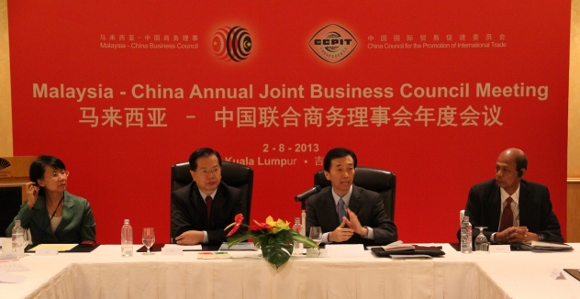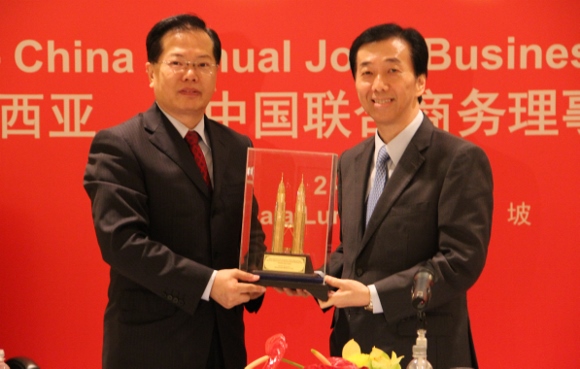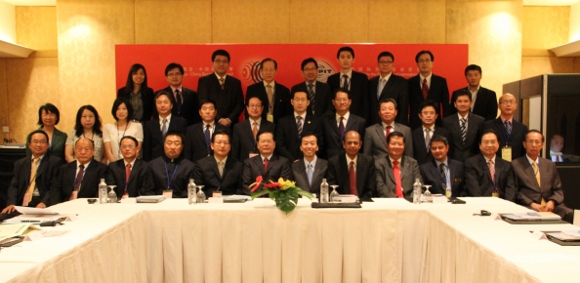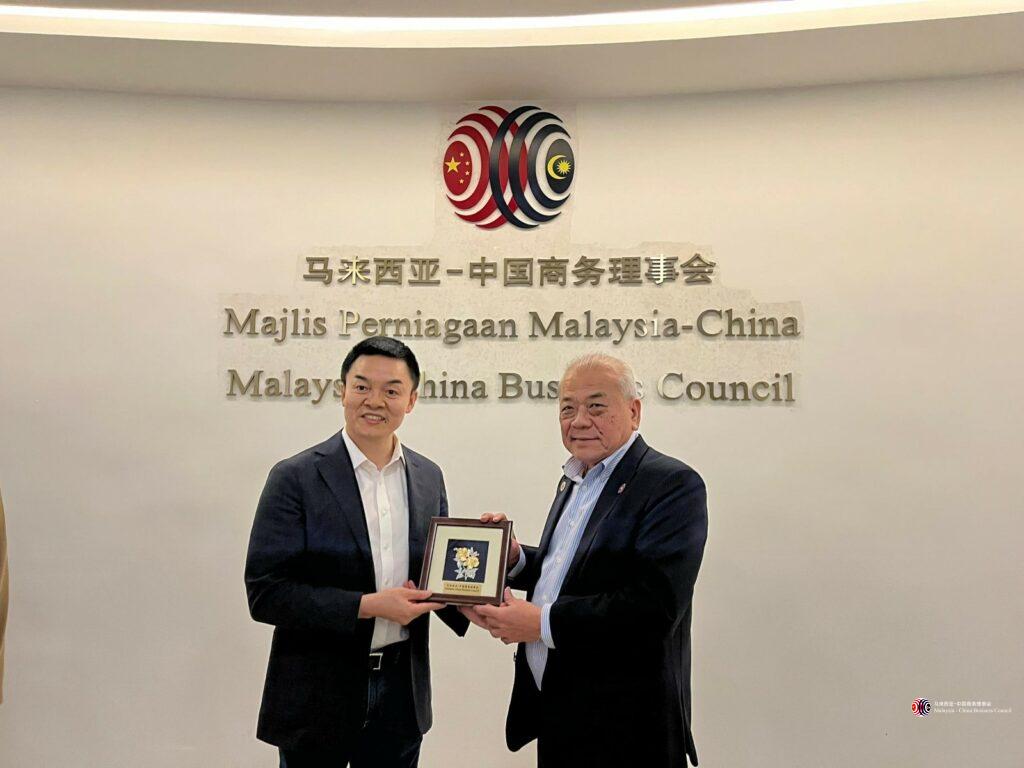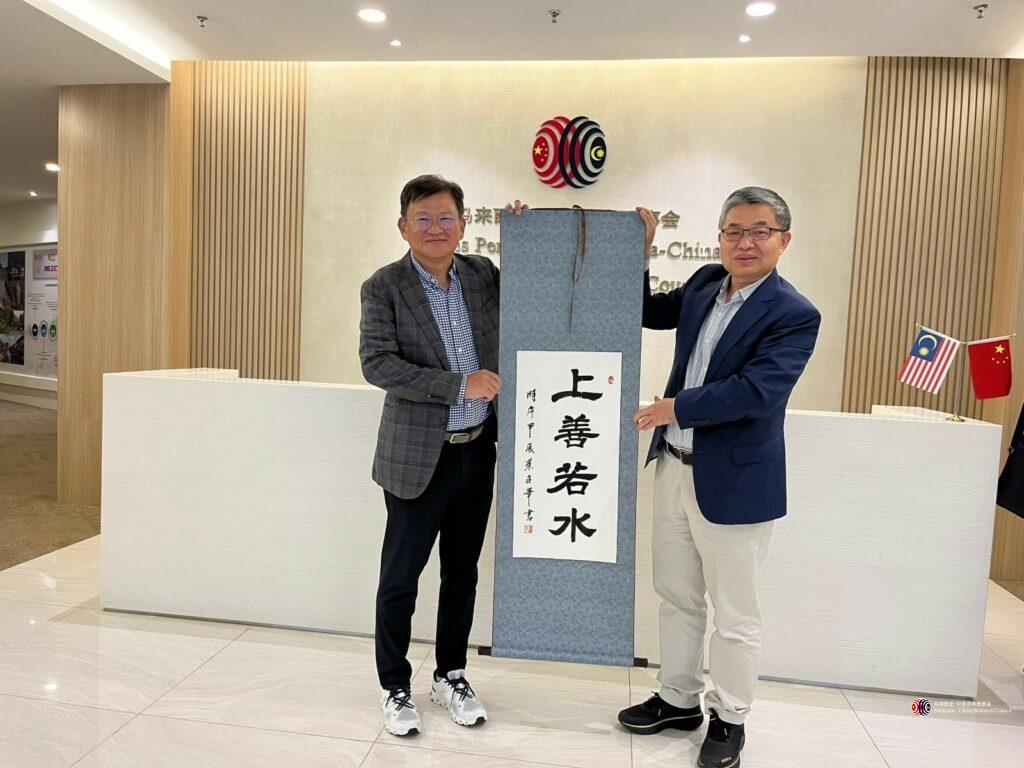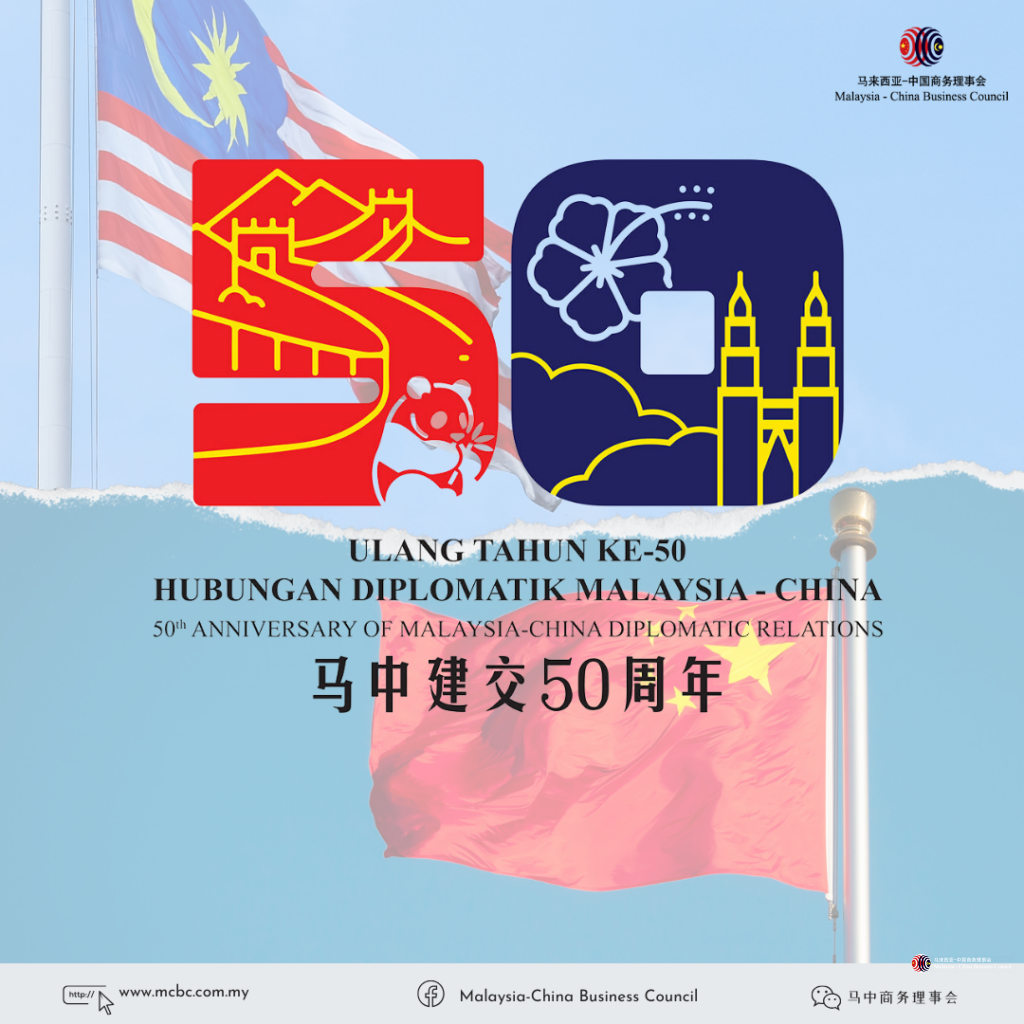Kuala Lumpur: Tan Sri Ong Ka Ting, the Prime Minister’s Special Envoy to China, has made a strong appeal to Chinese entrepreneurs to take full advantage of the Economic Transformation Programme (ETP) to invest in Malaysia.
Ong, who is also the Malaysia-China Business Council (MCBC) Chairman, said that Malaysia is fully engaged in the development of an inclusive and sustainable high income society to uplift the quality of life and improve the welfare of all its people which is the major objective of Malaysia’s Vision 2020.
“However, to achieve our 2020 vision, we need strong contributions from the private sector and also FDI to complement the government efforts,” he addressed when he chaired the Malaysia-China Joint Business Council annual meeting in Kuala Lumpur on Thursday.
“We earnestly hope that while our ETP is gaining momentum and while Malaysia-China economic co-operation is at its peak, Chinese entrepreneurs will seize this golden opportunity to lend us a hand to further enhance investments in all the key areas.”
Ong told the meeting that Chinese investment in Malaysia was too small compared to the huge US$500 billion Chinese overseas investment globally. “We in the MCBC will try our utmost to bring up the figure,” he added.
The ETP, launched in 2010, covers 12 National Key Economic Areas (NKEAs). They are oil, gas and energy, palm oil and rubber, financial services, tourism, business services, electrical and electronics, wholesale and retail, education, healthcare, communications content and infrastructure, agriculture, and greater Kuala Lumpur/Klang Valley.
Total investment in the private sector in 2012 surged to RM139.5 billion as against the targeted RM127.9 billion. In fact, he said private investment growth jumped three folds since the launch of ETP and was at record high for the last 10 years.
Ong also noted the twinning of the two sister parks — the Qinzhou Industrial Park and the Kuantan Industrial Park – had showcased not only a new model of economic co-operation between Malaysia and China but had also become a new benchmark in the broadening and deepening of bilateral relationship between Malaysia and China and a much talked about achievement in international diplomacy.
He stressed that the potential of further enhancing economic co-operation by way of mutual investment in industrial parks, open up new market for agriculture and halal products, services and tourism industry in particular is huge.
Mr Wang Jinzhen, Vice Chairman of the China Council for the Promotion of International Trade who co-chaired the meeting, said he was happy to see the healthy development of economic ties between the two nations. Bilateral trade last year was US$94.8 billion and judging by the trend, the volume would surpass the US$100 billion mark this year.
“China’s global trade was US$8.25 trillion in 2012 and by the year-end, we expect China to be the biggest trading country globally, overtaking the US,” he said. “As such, there is still great potential for improvement in terms of trade and economic co-operation.”
He said it was impossible for China to keep up with the above-10 per cent growth rate in future but the Government would maintain an average of 7.5 per cent growth to support employment and improvement of living standard of the people.
Several steps had been taken to achieve the target. These include urbanization, release of domestic demands and a greater delegation of power to market to create a far more open, transparent and business-friendly environment.
“All this means lots of opportunities for economic and trade co-operation between our two countries,” he said while echoing the call by Ong to step up joint efforts in blazing a “new silk route” between China and Malaysia.
The Deputy Secretary General (Trade) Mohd Ridzal Sherif gave a briefing on Malaysia’s business environment while senior managers of InvestKL, East Coast Economic Region Development Council and Iskandar Regional Development Authority were also invited to brief the meeting, each highlighting their attractive features and special development policies.
Mr Wang and his 23-member strong delegation also had individual meetings with Malaysian businessmen on the sideline. The Chinese delegation is representing the China Council for the Promotion of International Trade (CCPIT) to attend the annual joint meeting in Kuala Lumpur on 2 August.
